Searched: [Pastor
News
 A former Latin Kings gang member-turned-pastor said he came to faith in Jesus Christ only after he did time behind bars and nearly died from a heroin overdose.? A former Latin Kings gang member-turned-pastor said he came to faith in Jesus Christ only after he did time behind bars and nearly died from a heroin overdose.? |
The local sheriff's office has asked the FBI and the U.S. attorney's office to assist in investigating the death of Mica Miller, the 30-year-old pastor's wife who was found dead at a state park and whose cause of death has been the source of controversy.
|
As Crosswalk Headlines? previously reported, Mica had served Miller with divorce papers on April 25, just two days before her death, and had first filed for divorce on October 23. Her sister, Sierra Francis, said that Mica was looking forward to being free from her husband because he was reportedly abusive.
|
 While many clergy in the United States will be preaching sermons in celebration of Mother's Day, one pastor in Texas avoids doing so in consideration of those for whom the day brings pain and heartache. While many clergy in the United States will be preaching sermons in celebration of Mother's Day, one pastor in Texas avoids doing so in consideration of those for whom the day brings pain and heartache. |
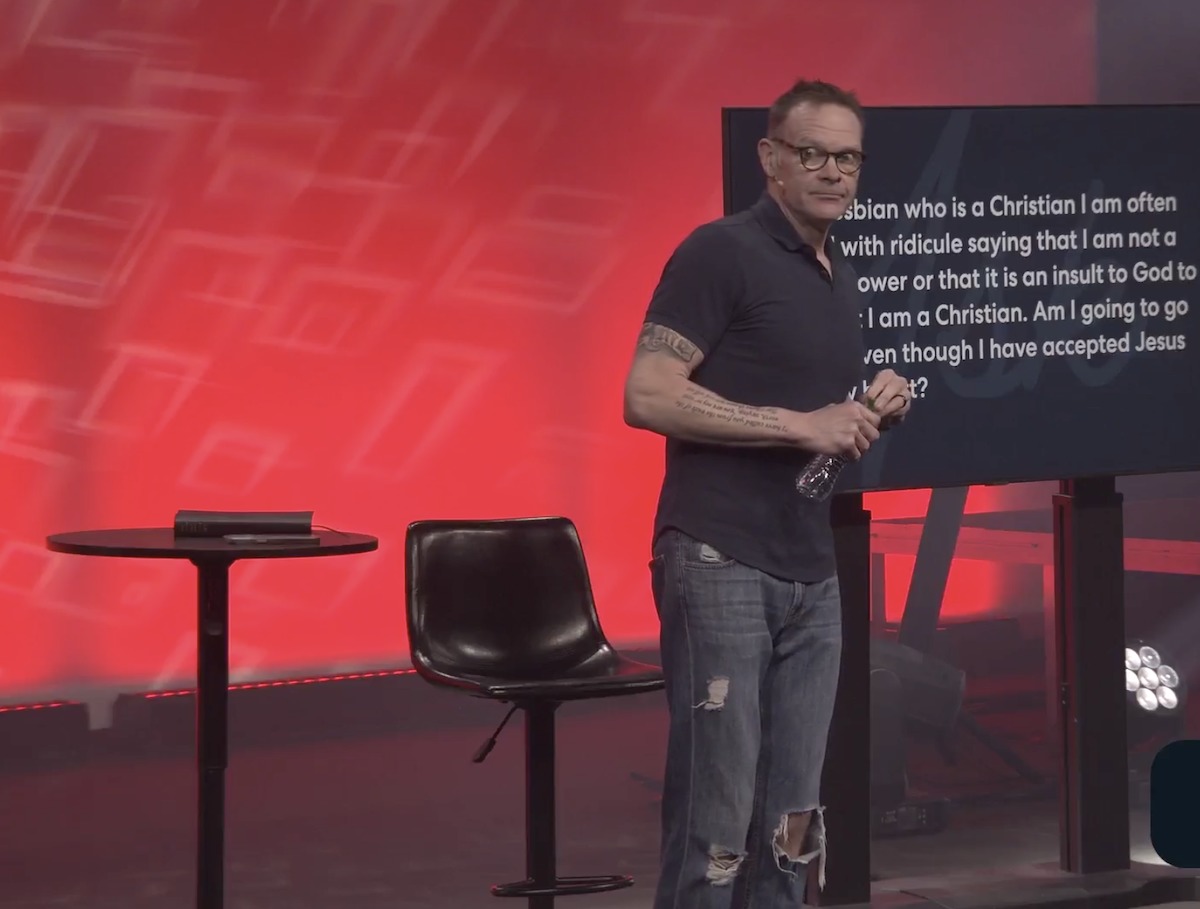 Former megachurch Pastor Perry Noble didn't mince words when he criticized ministry leaders who say women shouldn't preach during a sermon earlier this month. Former megachurch Pastor Perry Noble didn't mince words when he criticized ministry leaders who say women shouldn't preach during a sermon earlier this month. |
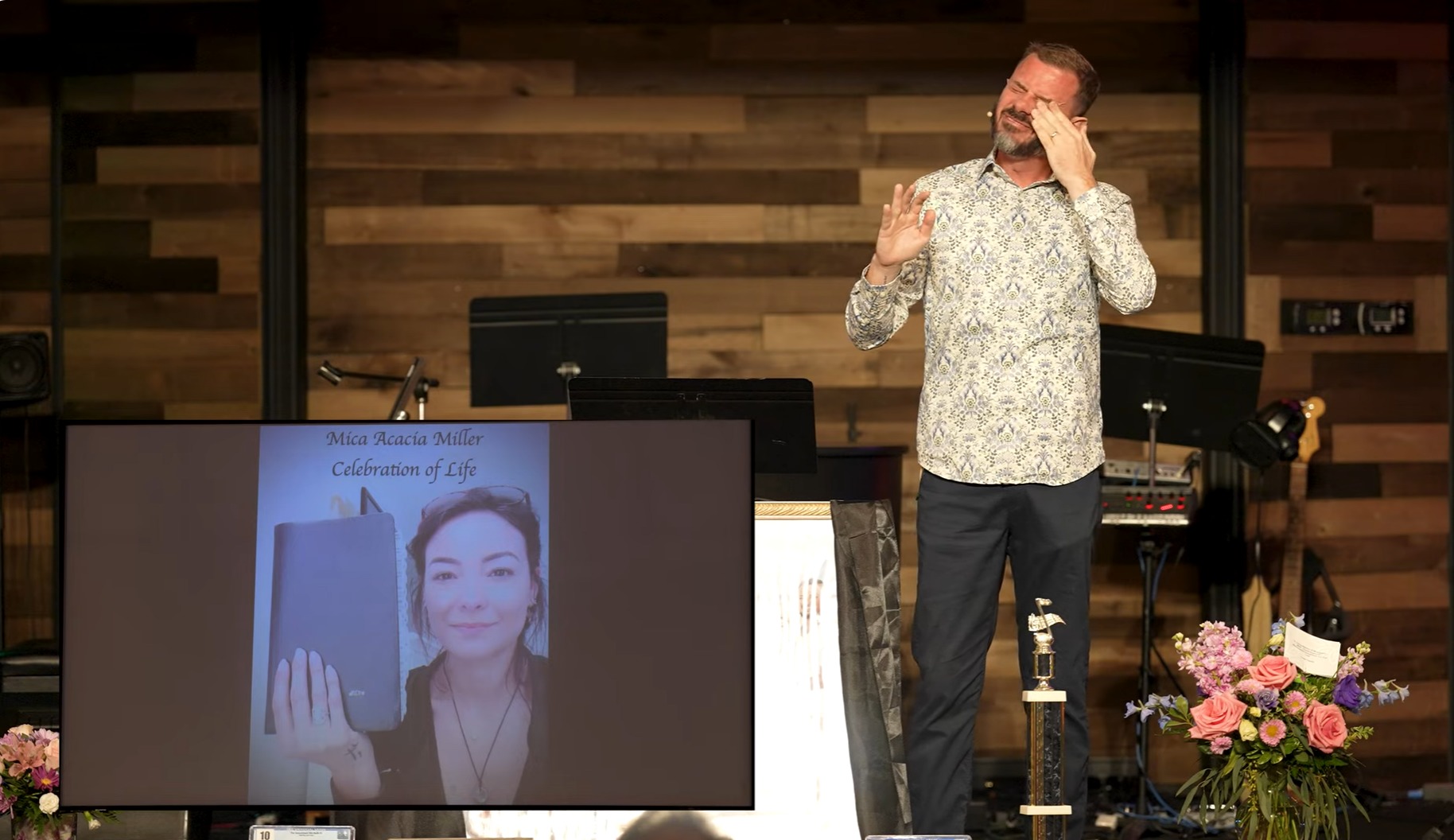 In a revelation that appeared to some as almost as unusual as his announcement of the suicide of his wife, Mica Miller, Pastor John-Paul Miller of? Solid Rock at Market Common? in Myrtle Beach, South Carolina, said he tried to raise her from the dead but it didn't work. In a revelation that appeared to some as almost as unusual as his announcement of the suicide of his wife, Mica Miller, Pastor John-Paul Miller of? Solid Rock at Market Common? in Myrtle Beach, South Carolina, said he tried to raise her from the dead but it didn't work. |
 The Village Church Pastor Matt Chandler has said he believes the mark of the beast is “active even now in this moment of history that we're in." The Village Church Pastor Matt Chandler has said he believes the mark of the beast is “active even now in this moment of history that we're in." |
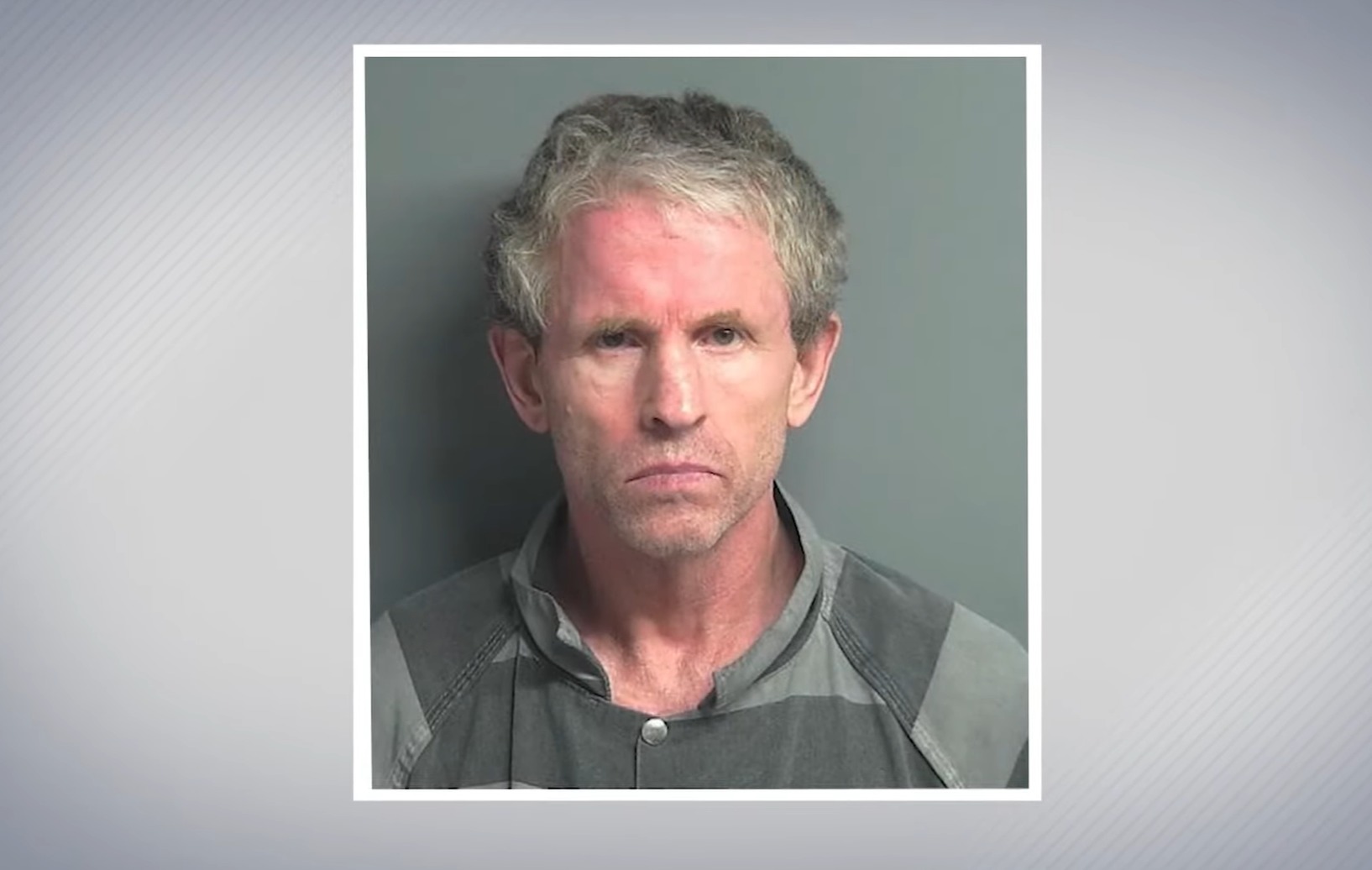 Calvary Chapel of The Woodlands, Texas, which hosts services in the auditorium of McCullough Junior High School, has announced the firing of their longtime pastor, Bruce Hollen, following his arrest for possession with intent to promote child pornography. Calvary Chapel of The Woodlands, Texas, which hosts services in the auditorium of McCullough Junior High School, has announced the firing of their longtime pastor, Bruce Hollen, following his arrest for possession with intent to promote child pornography. |
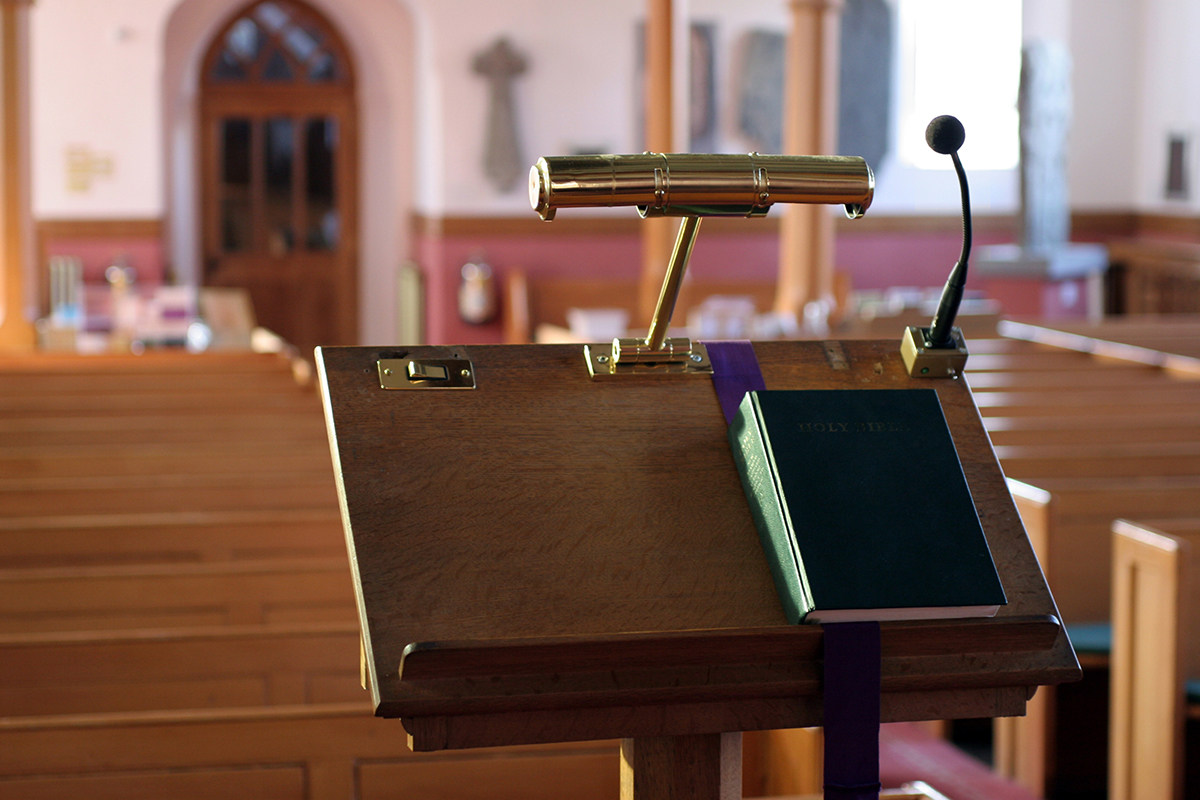 As pastors and ministry heads face? rising exhaustion and as each day seems to bring another leader facing allegations of misconduct, the Evangelical Council for Financial Accountability is developing a new "leadership standard" for member ministries in the hopes of combating burnout and "integrity failures" in churches and charities. As pastors and ministry heads face? rising exhaustion and as each day seems to bring another leader facing allegations of misconduct, the Evangelical Council for Financial Accountability is developing a new "leadership standard" for member ministries in the hopes of combating burnout and "integrity failures" in churches and charities. |
 The U.S. Attorney's Office and the Federal Bureau of Investigations in South Carolina confirmed Tuesday that they have been consulted about the suicide of Mica Miller, the late wife of Pastor John-Paul Miller of? Solid Rock at Market Common? in Myrtle Beach, South Carolina. The U.S. Attorney's Office and the Federal Bureau of Investigations in South Carolina confirmed Tuesday that they have been consulted about the suicide of Mica Miller, the late wife of Pastor John-Paul Miller of? Solid Rock at Market Common? in Myrtle Beach, South Carolina. |
The highlife musician challenged the materialism and extortion he encountered too often in the church.
 Kofi Owusu Dua-Anto, a Ghanaian gospel musician who challenged church leaders with his catchy songs, died last month age 45. Known professionally as KODA, the artist passed away suddenly on April 21 after a yet-undisclosed short illness.KODA won awards for his vocal and musical finesse and production skills, but he used the platform his music offered him to speak out against the materialism and self-promotion he believed had overtaken his country’s church leaders.“What is being preached from the pulpit? If it’s just the aesthetics of Christianity … the flashy things of how the man of God has visited 20 churches in the UK or the US and how he stood in T. D. Jakes’s church … if that’s the vision … then that’s what [Christians will] chase,” he said in 2021.In 2013, KODA put these concerns to music when he released “Nsem Pii” (“Many Issues”).“Fifteen ways to be successful, 13 ways to make much money, but the one way to make to heaven, preacher man, you don’t preach about it,” he sang in both Twi, a Ghanian local language, and English. “Listen, last Sunday I heard you preach; I must confess, I was confused, was that church of GIMPA?” (GIMPA or Ghana Institute of Management and Public Administration, is a prestigious public university in Ghana.)The track surprised many in the local Christian community, one that traditionally practiced unquestioned reverence toward pastors and church leaders, and the gospel music industry, which generally only sang about God and commented little on culture.KODA credited the Bible as his inspiration for his lyrics.“I was reading the Acts of the Apostles from [chapters] 1 to ...Continue reading... Kofi Owusu Dua-Anto, a Ghanaian gospel musician who challenged church leaders with his catchy songs, died last month age 45. Known professionally as KODA, the artist passed away suddenly on April 21 after a yet-undisclosed short illness.KODA won awards for his vocal and musical finesse and production skills, but he used the platform his music offered him to speak out against the materialism and self-promotion he believed had overtaken his country’s church leaders.“What is being preached from the pulpit? If it’s just the aesthetics of Christianity … the flashy things of how the man of God has visited 20 churches in the UK or the US and how he stood in T. D. Jakes’s church … if that’s the vision … then that’s what [Christians will] chase,” he said in 2021.In 2013, KODA put these concerns to music when he released “Nsem Pii” (“Many Issues”).“Fifteen ways to be successful, 13 ways to make much money, but the one way to make to heaven, preacher man, you don’t preach about it,” he sang in both Twi, a Ghanian local language, and English. “Listen, last Sunday I heard you preach; I must confess, I was confused, was that church of GIMPA?” (GIMPA or Ghana Institute of Management and Public Administration, is a prestigious public university in Ghana.)The track surprised many in the local Christian community, one that traditionally practiced unquestioned reverence toward pastors and church leaders, and the gospel music industry, which generally only sang about God and commented little on culture.KODA credited the Bible as his inspiration for his lyrics.“I was reading the Acts of the Apostles from [chapters] 1 to ...Continue reading... |
For all his greatness, we should most seek to imitate the late pastor's humility and indifference to fame.
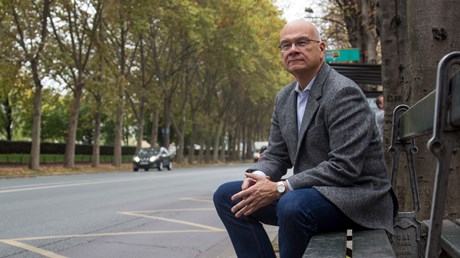 In spring of last year, many of us saw a photo of the late Timothy Keller sitting on a park bench. The photo was used on the cover of Collin Hansen’s biography of Keller, and it circulated around the internet in May when he passed away—on social media, blogs, and even Keller’s personal website.What most of us didn’t see, however, was the banana peel lying on the bench only a couple feet from Keller. The peel has been cropped from most versions of the photo, and understandably so. Who wants to see an ugly brown bit of organic waste in an author’s photograph?I confess that if I were a world-famous pastor and best-selling author having my picture taken by a professional photographer, I would most certainly have moved the banana peel before someone took my picture. Who wouldn’t? But Keller didn’t seem to care.I believe this points to a deeper character trait of Keller’s, which many observed during his lifetime of ministry: an indifference to fame and to curating an image—something many of us struggle with in the social media era. This is also part of why, I believe, he finished his race so well.Finishing well in life and ministry has been historically difficult for believers, especially for those in positions of leadership. Think of Gideon or Solomon in the Old Testament, Demas in the New Testament, or, of course, the many church leaders today who have infamously failed to persevere.The esteem that leaders receive from the Christian community can allow for hidden flaws to grow like rust on the hull of a ship, unnoticed and unaddressed at first. But as these leaders reach greater influence, greater weight is placed on these flaws—which can reach ...Continue reading... In spring of last year, many of us saw a photo of the late Timothy Keller sitting on a park bench. The photo was used on the cover of Collin Hansen’s biography of Keller, and it circulated around the internet in May when he passed away—on social media, blogs, and even Keller’s personal website.What most of us didn’t see, however, was the banana peel lying on the bench only a couple feet from Keller. The peel has been cropped from most versions of the photo, and understandably so. Who wants to see an ugly brown bit of organic waste in an author’s photograph?I confess that if I were a world-famous pastor and best-selling author having my picture taken by a professional photographer, I would most certainly have moved the banana peel before someone took my picture. Who wouldn’t? But Keller didn’t seem to care.I believe this points to a deeper character trait of Keller’s, which many observed during his lifetime of ministry: an indifference to fame and to curating an image—something many of us struggle with in the social media era. This is also part of why, I believe, he finished his race so well.Finishing well in life and ministry has been historically difficult for believers, especially for those in positions of leadership. Think of Gideon or Solomon in the Old Testament, Demas in the New Testament, or, of course, the many church leaders today who have infamously failed to persevere.The esteem that leaders receive from the Christian community can allow for hidden flaws to grow like rust on the hull of a ship, unnoticed and unaddressed at first. But as these leaders reach greater influence, greater weight is placed on these flaws—which can reach ...Continue reading... |
A new book seems oddly outraged that CRT skeptics take its arguments seriously.
 Last year I joined a group of Christian leaders, Black and white, on a tour of the National Museum of African American History and Culture located in Washington, DC.Even though I’ve read quite a bit about slavery and Jim Crow, I was still physically and emotionally disturbed by the visual depictions of the systemic and violent ways in which people of color were treated for centuries of American history. There is no sugarcoating this history. It was (and is) an offense against God, with ripple effects that continue to shape our national life.In the past decade, conversations on racism have become more heated, reaching a fever pitch in 2020 with the killing of George Floyd at the hands of a Minneapolis police officer.One outcome of the resulting ferment of protest and denunciation was renewed attention to critical race theory (popularly known as CRT), a controversial legal theory once confined to the academic world and now increasingly mainstreamed and popularized in public life, including many of our leading institutions.Books like White Fragility by Robin DiAngelo or How to Be an Antiracist by Ibram X. Kendi rose to the top of bestseller lists in 2020 and after. Corporations, government entities, and even churches began implementing steps drawn from these and other popular works. Evangelical publishers churned out books in this spirit as well.Some Christian leaders have defended the use of CRT as a helpful analytical tool. Others have criticized it as a totalizing worldview opposed to biblical Christianity. This debate has divided many Christians, exhausted many pastors, split many organizations, and convulsed our politics.Seeking to bring sanity and clarity to this ongoing conversation is ...Continue reading... Last year I joined a group of Christian leaders, Black and white, on a tour of the National Museum of African American History and Culture located in Washington, DC.Even though I’ve read quite a bit about slavery and Jim Crow, I was still physically and emotionally disturbed by the visual depictions of the systemic and violent ways in which people of color were treated for centuries of American history. There is no sugarcoating this history. It was (and is) an offense against God, with ripple effects that continue to shape our national life.In the past decade, conversations on racism have become more heated, reaching a fever pitch in 2020 with the killing of George Floyd at the hands of a Minneapolis police officer.One outcome of the resulting ferment of protest and denunciation was renewed attention to critical race theory (popularly known as CRT), a controversial legal theory once confined to the academic world and now increasingly mainstreamed and popularized in public life, including many of our leading institutions.Books like White Fragility by Robin DiAngelo or How to Be an Antiracist by Ibram X. Kendi rose to the top of bestseller lists in 2020 and after. Corporations, government entities, and even churches began implementing steps drawn from these and other popular works. Evangelical publishers churned out books in this spirit as well.Some Christian leaders have defended the use of CRT as a helpful analytical tool. Others have criticized it as a totalizing worldview opposed to biblical Christianity. This debate has divided many Christians, exhausted many pastors, split many organizations, and convulsed our politics.Seeking to bring sanity and clarity to this ongoing conversation is ...Continue reading... |
A San Antonio pastor and church are receiving widespread praise after the minister paused his sermon to embrace and vow support for a homeless man whom he invited on stage after the man began shouting obscenities during a sermon on the Parable of the Lost Sheep.
|
Texas Pastor Matt Chandler of The Village Church in Flower Mound recently shared why he believes the “mark of the beast,” as mentioned in the Bible in Revelation 13, is “active even now.”
|
Asian Christians must navigate ethical dilemmas in everyday life. This recent book can help.
 There are rules to follow in every culture, particularly in Asia, where many children must bear the responsibility of maintaining harmony within the home and familial structure. To deviate from the norms or traditions of any Asian society requires a bold willingness to try to demonstrate to one’s fellow citizens what is and is not working in their culture. As a Christian living or ministering in an Asian context, how can one manage these complex situations?The contributors to Asian Christian Ethics, an anthology published in 2022, grapple with the challenges Asian Christians face in their particular social contexts, often characterized by strictly defined societal ranking and hierarchy, religious violence against Christians, or suffering among marginalized groups. The theologians, pastors, and missiologists who authored this volume come from the Philippines, Malaysia, China/Hong Kong, Singapore, Sri Lanka, and Korea, plus one perspective from Palestine. The writers, many of whom studied in the West and are familiar with Western ways of thinking, provide valuable insight into Asian mindsets.Each chapter begins by examining what Scripture teaches on a particular social issue. Then the writers draw on their expertise to address the ethical challenges surrounding that issue within a specific cultural context.Marriage and divorceIn “Water Is Thicker Than Blood,” Bernard Wong offers insights on the changing views of traditional marriage. He notes that divorce has become more prevalent in Asian society (though not yet as normalized as in Western cultures) and that young adults are waiting longer to get married, with over 90 percent of 20-to-24-year-olds still single in Hong Kong, Japan, South Korea, Taiwan, and ...Continue reading... There are rules to follow in every culture, particularly in Asia, where many children must bear the responsibility of maintaining harmony within the home and familial structure. To deviate from the norms or traditions of any Asian society requires a bold willingness to try to demonstrate to one’s fellow citizens what is and is not working in their culture. As a Christian living or ministering in an Asian context, how can one manage these complex situations?The contributors to Asian Christian Ethics, an anthology published in 2022, grapple with the challenges Asian Christians face in their particular social contexts, often characterized by strictly defined societal ranking and hierarchy, religious violence against Christians, or suffering among marginalized groups. The theologians, pastors, and missiologists who authored this volume come from the Philippines, Malaysia, China/Hong Kong, Singapore, Sri Lanka, and Korea, plus one perspective from Palestine. The writers, many of whom studied in the West and are familiar with Western ways of thinking, provide valuable insight into Asian mindsets.Each chapter begins by examining what Scripture teaches on a particular social issue. Then the writers draw on their expertise to address the ethical challenges surrounding that issue within a specific cultural context.Marriage and divorceIn “Water Is Thicker Than Blood,” Bernard Wong offers insights on the changing views of traditional marriage. He notes that divorce has become more prevalent in Asian society (though not yet as normalized as in Western cultures) and that young adults are waiting longer to get married, with over 90 percent of 20-to-24-year-olds still single in Hong Kong, Japan, South Korea, Taiwan, and ...Continue reading... |
From 1978 to 2008, he fought for legal recognition and freedom to worship for the Anabaptist denomination.
 Nguyen Quang Trung spent 30 years trying to get the Mennonite church recognized and registered by the government of Vietnam so that believers could meet and worship legally. When he finally succeeded, he celebrated the triumph with the words of the apostle Paul: “If we live, we live for the Lord; and if we die, we die for the Lord. So, whether we live or die, we belong to the Lord” (Rom. 14:8).Nguyen, a pastor and two-time president of Hội Thánh Mennonite Việt Nam (Vietnam Mennonite Church), died on March 23 at age 84. He was known for his “patient persistence” and “tireless efforts to promote and legally confirm a Mennonite presence in Vietnam,” Gerry Keener, former head of Eastern Mennonite Missions, told Anabaptist World.Nguyen was born in Gia Dinh, an industrial area outside Saigon. His mother died when he was five. His father was a committed Christian who raised him in the Evangelical Church of Vietnam, part of the Christian and Missionary Alliance.In his 20s, Nguyen found himself drawn to the Mennonites, spending a lot of time in a reading room established by the Eastern Mennonite Board of Missions and Charities. He took classes on English and the Bible and learned the Anabaptist teachings about nonviolence.“The same Spirit that empowered Jesus also empowers us to love enemies,” the missionaries taught Nguyen, “to forgive rather than to seek revenge, to practice right relationships, to rely on the community of faith to settle disputes, and to resist evil without violence.”Nguyen embraced the idea that Christians should “follow Christ in the way of peace” and practice “nonresistance,” even if they faced persecution and death.The ...Continue reading... Nguyen Quang Trung spent 30 years trying to get the Mennonite church recognized and registered by the government of Vietnam so that believers could meet and worship legally. When he finally succeeded, he celebrated the triumph with the words of the apostle Paul: “If we live, we live for the Lord; and if we die, we die for the Lord. So, whether we live or die, we belong to the Lord” (Rom. 14:8).Nguyen, a pastor and two-time president of Hội Thánh Mennonite Việt Nam (Vietnam Mennonite Church), died on March 23 at age 84. He was known for his “patient persistence” and “tireless efforts to promote and legally confirm a Mennonite presence in Vietnam,” Gerry Keener, former head of Eastern Mennonite Missions, told Anabaptist World.Nguyen was born in Gia Dinh, an industrial area outside Saigon. His mother died when he was five. His father was a committed Christian who raised him in the Evangelical Church of Vietnam, part of the Christian and Missionary Alliance.In his 20s, Nguyen found himself drawn to the Mennonites, spending a lot of time in a reading room established by the Eastern Mennonite Board of Missions and Charities. He took classes on English and the Bible and learned the Anabaptist teachings about nonviolence.“The same Spirit that empowered Jesus also empowers us to love enemies,” the missionaries taught Nguyen, “to forgive rather than to seek revenge, to practice right relationships, to rely on the community of faith to settle disputes, and to resist evil without violence.”Nguyen embraced the idea that Christians should “follow Christ in the way of peace” and practice “nonresistance,” even if they faced persecution and death.The ...Continue reading... |
The champion of “native missions” trained more than 100,000 evangelists but got in trouble for financial mismanagement.
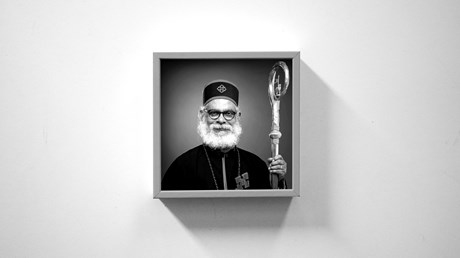 Athanasius Yohannan, who built one of the world’s largest mission organizations on the idea that Western Christians should support “native missionaries” but got in trouble for financial irregularities and dishonest fundraising, died on May 8. He was 74 and got hit by a car while walking along the road near his ministry headquarters in Texas.Born Kadapilaril Punnoose Yohannan and known for most of his ministry as K. P., Yohannan founded Gospel for Asia in 1979. Over the next 45 years, the organization trained more than 100,000 people to preach the gospel and plant and pastor churches in India, Bangladesh, Nepal, Sri Lanka, and other places in Southeast Asia, according to a recent ministry report. Gospel for Asia raised as much as $93 million in a year and in 2005 reported it was supporting about 14,500 indigenous evangelists and pastors in same-culture and near-culture ministry. Christians in the US were asked to give $30 per month to support them.“If we evangelize the world’s lost billions … it will be through native missions,” Yohannan wrote for CT. “The native missionary is far more effective than the expatriate. The national already knows the language and is already part of the culture. In many instances, he or she can go places where outsiders cannot go.”Yohannan’s death was mourned by Gospel for Asia, the church that he started and served as metropolitan bishop, and prominent political leaders in India.“He will be remembered for his service to society and emphasis on improving the quality of life of the downtrodden,” Prime Minister Narendra Modi wrote on social media. “May his soul rest in peace.”Both the governor of Kerala and the ...Continue reading... Athanasius Yohannan, who built one of the world’s largest mission organizations on the idea that Western Christians should support “native missionaries” but got in trouble for financial irregularities and dishonest fundraising, died on May 8. He was 74 and got hit by a car while walking along the road near his ministry headquarters in Texas.Born Kadapilaril Punnoose Yohannan and known for most of his ministry as K. P., Yohannan founded Gospel for Asia in 1979. Over the next 45 years, the organization trained more than 100,000 people to preach the gospel and plant and pastor churches in India, Bangladesh, Nepal, Sri Lanka, and other places in Southeast Asia, according to a recent ministry report. Gospel for Asia raised as much as $93 million in a year and in 2005 reported it was supporting about 14,500 indigenous evangelists and pastors in same-culture and near-culture ministry. Christians in the US were asked to give $30 per month to support them.“If we evangelize the world’s lost billions … it will be through native missions,” Yohannan wrote for CT. “The native missionary is far more effective than the expatriate. The national already knows the language and is already part of the culture. In many instances, he or she can go places where outsiders cannot go.”Yohannan’s death was mourned by Gospel for Asia, the church that he started and served as metropolitan bishop, and prominent political leaders in India.“He will be remembered for his service to society and emphasis on improving the quality of life of the downtrodden,” Prime Minister Narendra Modi wrote on social media. “May his soul rest in peace.”Both the governor of Kerala and the ...Continue reading... |
One of the founding leaders of Victory megachurch, he never stopped running to share the gospel.
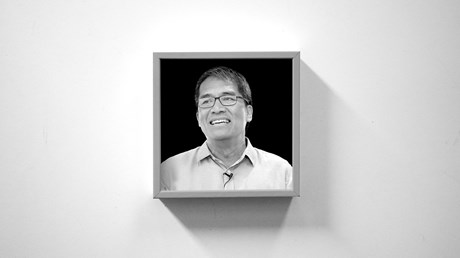 Ferdinand “Ferdie” Cabiling, a bishop at one of the Philippines’ largest megachurches who ran across the Philippines to raise money for disadvantaged students, died April 1, the day after Easter. He was 58 years old.Dubbed “the Running Pastor,” the moniker describes not only Cabiling’s epic race but how he lived his life and served as an evangelist. For 38 years, he was a vocational minister of Victory Christian Fellowship of the Philippines, which has nearly 150 locations in the country. The branch he led, Victory Metro Manila, averaged more than 75,000 people each Sunday. [Note: The author is a member of Victory Church and was a part of the late pastor's small group in 2014.]In the past two years, his focus was on teaching evangelism to Victory leaders. Every time he received a teaching invitation, his answer was always yes, said his assistant, Faye Bonifacio.“He was a maximizer,” Bonifacio said, noting that Cabiling developed a habit of taking short naps while parked at a gas station between long drives. “Because he liked to drive, he did a lot in a day.”Hours before his death, Cabiling had visited a church member at a hospital an hour away from his hometown of Cuyapo before parking his car at a gas station, likely for a break before heading to his next destination. It was there that an attendant found his lifeless body and rushed him to the hospital he had just visited. Cabiling had died of a heart attack.“He was a serious man of passion, action, and conviction,” wrote Steve Murrell, the founding pastor of Victory, the flagship church for the charismatic-leaning Every Nation Churches and Ministries, which has churches and campus ministries in ...Continue reading... Ferdinand “Ferdie” Cabiling, a bishop at one of the Philippines’ largest megachurches who ran across the Philippines to raise money for disadvantaged students, died April 1, the day after Easter. He was 58 years old.Dubbed “the Running Pastor,” the moniker describes not only Cabiling’s epic race but how he lived his life and served as an evangelist. For 38 years, he was a vocational minister of Victory Christian Fellowship of the Philippines, which has nearly 150 locations in the country. The branch he led, Victory Metro Manila, averaged more than 75,000 people each Sunday. [Note: The author is a member of Victory Church and was a part of the late pastor's small group in 2014.]In the past two years, his focus was on teaching evangelism to Victory leaders. Every time he received a teaching invitation, his answer was always yes, said his assistant, Faye Bonifacio.“He was a maximizer,” Bonifacio said, noting that Cabiling developed a habit of taking short naps while parked at a gas station between long drives. “Because he liked to drive, he did a lot in a day.”Hours before his death, Cabiling had visited a church member at a hospital an hour away from his hometown of Cuyapo before parking his car at a gas station, likely for a break before heading to his next destination. It was there that an attendant found his lifeless body and rushed him to the hospital he had just visited. Cabiling had died of a heart attack.“He was a serious man of passion, action, and conviction,” wrote Steve Murrell, the founding pastor of Victory, the flagship church for the charismatic-leaning Every Nation Churches and Ministries, which has churches and campus ministries in ...Continue reading... |
From 1978 to 2008, he fought for legal recognition and freedom to worship for the Anabaptist denomination.
 Nguyen Quang Trung spent 30 years trying to get the Mennonite church recognized and registered by the government of Vietnam so that believers could meet and worship legally. When he finally succeeded, he celebrated the triumph with the words of the apostle Paul: “If we live, we live for the Lord; and if we die, we die for the Lord. So, whether we live or die, we belong to the Lord” (Rom. 14:8).Nguyen, a pastor and two-time president of Hội Thánh Mennonite Việt Nam (Vietnam Mennonite Church), died on March 23 at age 84. He was known for his “patient persistence” and “tireless efforts to promote and legally confirm a Mennonite presence in Vietnam,” Gerry Keener, former head of Eastern Mennonite Missions, told Anabaptist World.Nguyen was born in Gia Dinh, an industrial area outside Saigon. His mother died when he was five. His father was a committed Christian who raised him in the Evangelical Church of Vietnam, part of the Christian and Missionary Alliance.In his 20s, Nguyen found himself drawn to the Mennonites, spending a lot of time in a reading room established by the Eastern Mennonite Board of Missions and Charities. He took classes on English and the Bible and learned the Anabaptist teachings about nonviolence.“The same Spirit that empowered Jesus also empowers us to love enemies,” the missionaries taught Nguyen, “to forgive rather than to seek revenge, to practice right relationships, to rely on the community of faith to settle disputes, and to resist evil without violence.”Nguyen embraced the idea that Christians should “follow Christ in the way of peace” and practice “nonresistance,” even if they faced persecution and death.The ...Continue reading... Nguyen Quang Trung spent 30 years trying to get the Mennonite church recognized and registered by the government of Vietnam so that believers could meet and worship legally. When he finally succeeded, he celebrated the triumph with the words of the apostle Paul: “If we live, we live for the Lord; and if we die, we die for the Lord. So, whether we live or die, we belong to the Lord” (Rom. 14:8).Nguyen, a pastor and two-time president of Hội Thánh Mennonite Việt Nam (Vietnam Mennonite Church), died on March 23 at age 84. He was known for his “patient persistence” and “tireless efforts to promote and legally confirm a Mennonite presence in Vietnam,” Gerry Keener, former head of Eastern Mennonite Missions, told Anabaptist World.Nguyen was born in Gia Dinh, an industrial area outside Saigon. His mother died when he was five. His father was a committed Christian who raised him in the Evangelical Church of Vietnam, part of the Christian and Missionary Alliance.In his 20s, Nguyen found himself drawn to the Mennonites, spending a lot of time in a reading room established by the Eastern Mennonite Board of Missions and Charities. He took classes on English and the Bible and learned the Anabaptist teachings about nonviolence.“The same Spirit that empowered Jesus also empowers us to love enemies,” the missionaries taught Nguyen, “to forgive rather than to seek revenge, to practice right relationships, to rely on the community of faith to settle disputes, and to resist evil without violence.”Nguyen embraced the idea that Christians should “follow Christ in the way of peace” and practice “nonresistance,” even if they faced persecution and death.The ...Continue reading... |
 A Pennsylvania pastor praised God for what he called a "miracle" after an F1 tornado ripped off the roof of his church as about 100 people worshiped inside on Saturday evening, and everyone survived without any significant injuries. A Pennsylvania pastor praised God for what he called a "miracle" after an F1 tornado ripped off the roof of his church as about 100 people worshiped inside on Saturday evening, and everyone survived without any significant injuries. |
 A 26-year-old man is facing charges of criminal homicide after authorities discovered his cousin dead in their shared residence in North Braddock, Pennsylvania, hours before he attempted to shoot a local pastor during a Sunday worship service. A 26-year-old man is facing charges of criminal homicide after authorities discovered his cousin dead in their shared residence in North Braddock, Pennsylvania, hours before he attempted to shoot a local pastor during a Sunday worship service. |
 If he had known that the crying he heard at Lumber River State Park on April 27 was that of a woman who was about to take her life, Johnnie Jacobs believes he would have tried to help. Jacobs now regrets not checking to see what was going on before he heard a gunshot when Pastor John-Paul Miller's late wife, Mica Miller, decided to kill herself. If he had known that the crying he heard at Lumber River State Park on April 27 was that of a woman who was about to take her life, Johnnie Jacobs believes he would have tried to help. Jacobs now regrets not checking to see what was going on before he heard a gunshot when Pastor John-Paul Miller's late wife, Mica Miller, decided to kill herself. |
The champion of “native missions” trained more than 100,000 evangelists but got in trouble for financial mismanagement.
 Athanasius Yohannan, who built one of the world’s largest mission organizations on the idea that Western Christians should support “native missionaries” but got in trouble for financial irregularities and dishonest fundraising, died on May 8. He was 74 and got hit by a car while walking along the road near his ministry headquarters in Texas.Born Kadapilaril Punnoose Yohannan and known for most of his ministry as K. P., Yohannan founded Gospel for Asia in 1979. Over the next 45 years, the organization trained more than 100,000 people to preach the gospel and plant and pastor churches in India, Bangladesh, Nepal, Sri Lanka, and other places in Southeast Asia, according to a recent ministry report. Gospel for Asia raised as much as $93 million in a year and in 2005 reported it was supporting about 14,500 indigenous evangelists and pastors in same-culture and near-culture ministry. Christians in the US were asked to give $30 per month to support them.“If we evangelize the world’s lost billions … it will be through native missions,” Yohannan wrote for CT. “The native missionary is far more effective than the expatriate. The national already knows the language and is already part of the culture. In many instances, he or she can go places where outsiders cannot go.”Yohannan’s death was mourned by Gospel for Asia, the church that he started and served as metropolitan bishop, and prominent political leaders in India.“He will be remembered for his service to society and emphasis on improving the quality of life of the downtrodden,” Prime Minister Narendra Modi wrote on social media. “May his soul rest in peace.”Both the governor of Kerala and the ...Continue reading... Athanasius Yohannan, who built one of the world’s largest mission organizations on the idea that Western Christians should support “native missionaries” but got in trouble for financial irregularities and dishonest fundraising, died on May 8. He was 74 and got hit by a car while walking along the road near his ministry headquarters in Texas.Born Kadapilaril Punnoose Yohannan and known for most of his ministry as K. P., Yohannan founded Gospel for Asia in 1979. Over the next 45 years, the organization trained more than 100,000 people to preach the gospel and plant and pastor churches in India, Bangladesh, Nepal, Sri Lanka, and other places in Southeast Asia, according to a recent ministry report. Gospel for Asia raised as much as $93 million in a year and in 2005 reported it was supporting about 14,500 indigenous evangelists and pastors in same-culture and near-culture ministry. Christians in the US were asked to give $30 per month to support them.“If we evangelize the world’s lost billions … it will be through native missions,” Yohannan wrote for CT. “The native missionary is far more effective than the expatriate. The national already knows the language and is already part of the culture. In many instances, he or she can go places where outsiders cannot go.”Yohannan’s death was mourned by Gospel for Asia, the church that he started and served as metropolitan bishop, and prominent political leaders in India.“He will be remembered for his service to society and emphasis on improving the quality of life of the downtrodden,” Prime Minister Narendra Modi wrote on social media. “May his soul rest in peace.”Both the governor of Kerala and the ...Continue reading... |



 Links
Links  Articles
Articles  Blogs
Blogs  Videos
Videos  News
News  Colors
Colors 

 New links
New links

